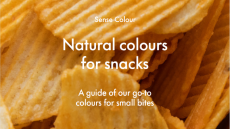Treatt expects better results following Earthoil buyout
results since acquiring the remaining 50 per cent of Earthoil
Plantations and Earthoil Kenya, giving it full control over
operations.
Treatt, which supplies the flavour, fragrance and cosmetics industries, entered into a joint venture with Earthoil in February 2012 in order to shore up both companies' organic offerings. In particular, the companies introduced an Eartharome range of organic aqueous distillates, intended to mirror the options in Treatt's Treattarome range. Under the terms of this contract, Treatt had no involvement in the day-to-day running of the Earthoil business, but it did have the option of acquiring the companies in full by 2012. However over the first 12 months, Treatt saw disappointing results coming through from the arrangement. For the six months ended March 31, for instance, losses totalled £232,000, compared to £23,000 in 2007. For the 50 per cent, Treatt is to pay an earn-out equal to 50 per cent of eleven times the average audited pre-tax profits of Earthoil for the two years ended December 31 2011, with a cap at £5m. "The board believes that by gaining full control of Earthoil, it will be better able to ensure that Earthoil achieves its potential, both in terms of sales and profitability," said the company in its six month results announcement this week. "We are now in a strong position to direct and control its growth," it added, noting the potential for organic ingredients in the packaged goods sector. Consumer demand for 100 per cent organic foods, and that translates into a stimulus for the organic flavours market. Organic Monitor estimates that the UK organic food & drink market alone grew by an impressive 25 per cent in 2007 to be worth £1.97bn (c €2.9bn). While Earthoil was, undoubtedly, a fly in the ointment for Treatt's first half, it has also reported a 13 per cent increase in revenue on the same period of last year, to £21,662,000. This was driven mainly by Q2, since Q1 was "quiet". However operating profit (EBITDA) took a hit from rising raw material costs. All flavour and fragrance raw material costs are said to have risen as a knock-one effect of high energy prices, with the exception of orange oil prices, which have remained stable. Daemmon Reeve, senior purchasing and business manager for Treatt in Europe said that orange oil has remained stable since it is a bi-product of the juice processing industry. The main producers of orange are Brazil and Florida. "While the forthcoming Brazilian crop is likely to be slightly lower than last season, supply is still sufficient to meet demand," Reeve told FoodNavigator.com. In this context, Treatt's recent investment in orange oil capacity looks to have been on the money, as sales volumes are said to have increased by some 44 per cent. In regional terms, Treatt said its UK operating subsidiary had a good six months, experiencing a nine per cent increase in sales, despite the impact of unfavourable dollar exchange rates. The US was the true star, however, where profits are said to have doubled. Revenues for the entire Americas region were up to 5884 in H1, compared to 5160 in H1 2007. Sales to the Middle and Far East were also described as remaining strong, and above levels for last year. These markets are accounted under 'rest of the world', which saw revenues rise from £6018 in H1 2007 to £4640 this year.





















